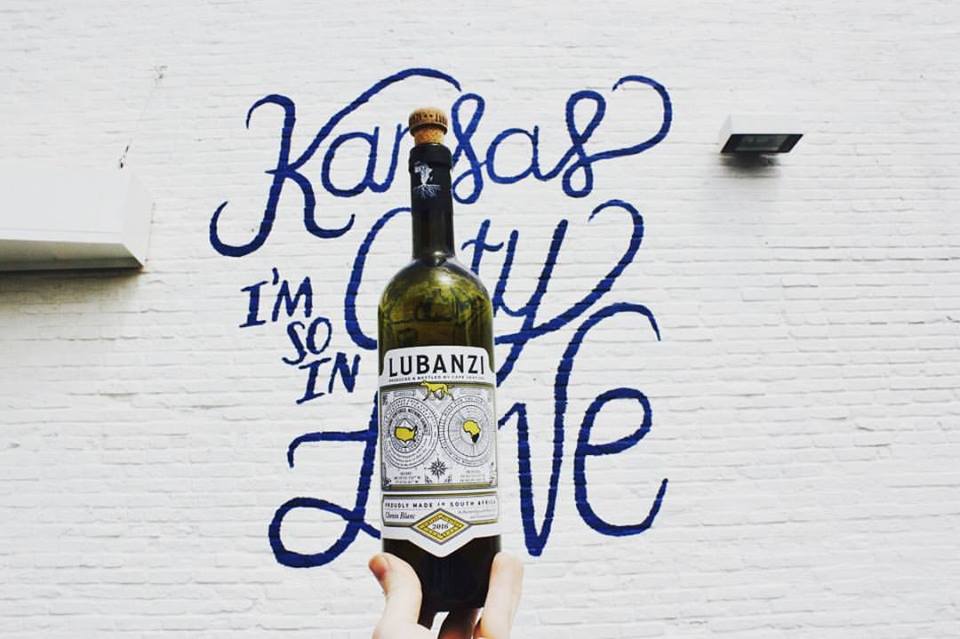Lubanzi Wines are a social impact wine brand based in South Africa that strives to improve access to high— quality health and education for farm workers in the wine region.
The founders of Lubanzi Wines, Charles Brain and Walker Brown, after traveling across South Africa were inspired to build partnerships with some of the best winemakers and designers in the country and give back to the South African community.
Lubanzi Wine’s mission is embedded in the mindset of ‘locally run, globally minded’ and aims to connect consumers to cultivators in South Africa while producing some spectacular wine.
See below for a Q&A with the co-founder of Lubanzi Wine, Charles Brain
Talk about your initial travels to South Africa and how it inspires you to create a social impact wine company.
Walker and I first met one another in South Africa, as exchange students in 2014, and over the course of 6 months of walking, hiking, some studying, biking, driving, surfing and of course, drinking, across the country we felt at home and in love with it. It was one of those adventures in life that the moment it ended, you look back on it and can see how deeply it’s changed and moved you.
At the same time, we were well exposed to the sad challenges many South Africans are facing, each and every day, and the role that Apartheid played in creating those. In the wine industry, farm workers are paid little and face a number of difficult issues.
It would be easy to say they should be paid more, but the reality is that only a very small number of South African wine producers are profitable. Some break even, but most lose money.
So, we created Lubanzi because we wanted to create an opportunity for people to connect with a country that, despite being one of the world’s largest wine producers, is often overlooked, and has so much to offer people.
At the same time, we wanted to create something that could give back to these farm workers and try to address inequality in the long-term.
Tell us the story behind why you named the company “Lubanzi”?
Lubanzi is named for a wandering dog that followed us on a 6 day, 100-mile hike along a remote, beautiful part of South Africa’s eastern shore called The Wild Coast.
Our first day into the journey, this wandering mutt came out of nowhere on a beach and just started following us and our friends as we walked. 6 days & 100 miles later, he disappeared on our final night, wandering off on his own into the dark.
We think to this day, Lubanzi is probably shepherding travelers along the same coastline. (As you can tell, we weren’t keen on going with something traditional to the wine space.)
The company plans to donate 50% off all profits to the Pebbles Project. Why 50%? What was the thought process of choosing that % to give back?
We chose 50% of our profits because first and foremost we felt like it was important to do something substantial for the people who are really at the heart of the wine, our growers. Profits are, in many ways, a measure of a business’s success and we wanted to share any kind of success we had equally.
Can you tell us about your partnership with the Pebbles Project and the impact it has had on the families of the workers who produce Lubanzi wine?
There are 54 kids that currently live on the farm where our wine is grown, and whose parents work the farm. So far, through the Pebbles Project, we’ve been able to provide access to a new, high-quality medical & dental clinic for year-round basic screenings & care for those 54 children.
In addition to that, we’ve been able to sponsor year-round basic medical care for another 40 kids, whose parents are laborers on SA’s wine farms. In total, we’ve been able to increase access to high quality medical care for 94 children whose parents are the labor on SA’s wine farms and otherwise couldn’t afford this type of care.

What have been some of the challenges you’ve faced bringing Lubanzi to the American market.
The hardest challenge for us has been getting access to retail space and reaching our like-minded tribe of consumers. 80% of the wine sold in America is sold through brick & mortar, 90% of that retail space is owned by a small handful of established companies and every year, over 1,000 new wine brands are launched.
It’s been hard for us to sort through all that clutter and speak to the like-minded, socially conscious individuals that we know are out there and would love to be a part of this mission.
We’re very active about selling online and pursuing digital opportunities, but ultimately, we recognize that only 1% of all wine is sold online and in order to really succeed and reach people, we need to be successful in the world of traditional retail.
What has inspired you the most over the last year building a social impact wine company?
Meeting all the other people out there who are starting companies of all shapes and sizes. When you’re putting your heart into a new, small business day-in and day-out, it’s really inspiring to hear when other people are doing the same, because you feel like you’re not so crazy after all.
When you get to see someone else succeed, it’s even more special. Our accelerator, COMMON, has been special at doing that for us.
Additionally, when someone honestly tells us they love the wine, it makes that day worth it.







